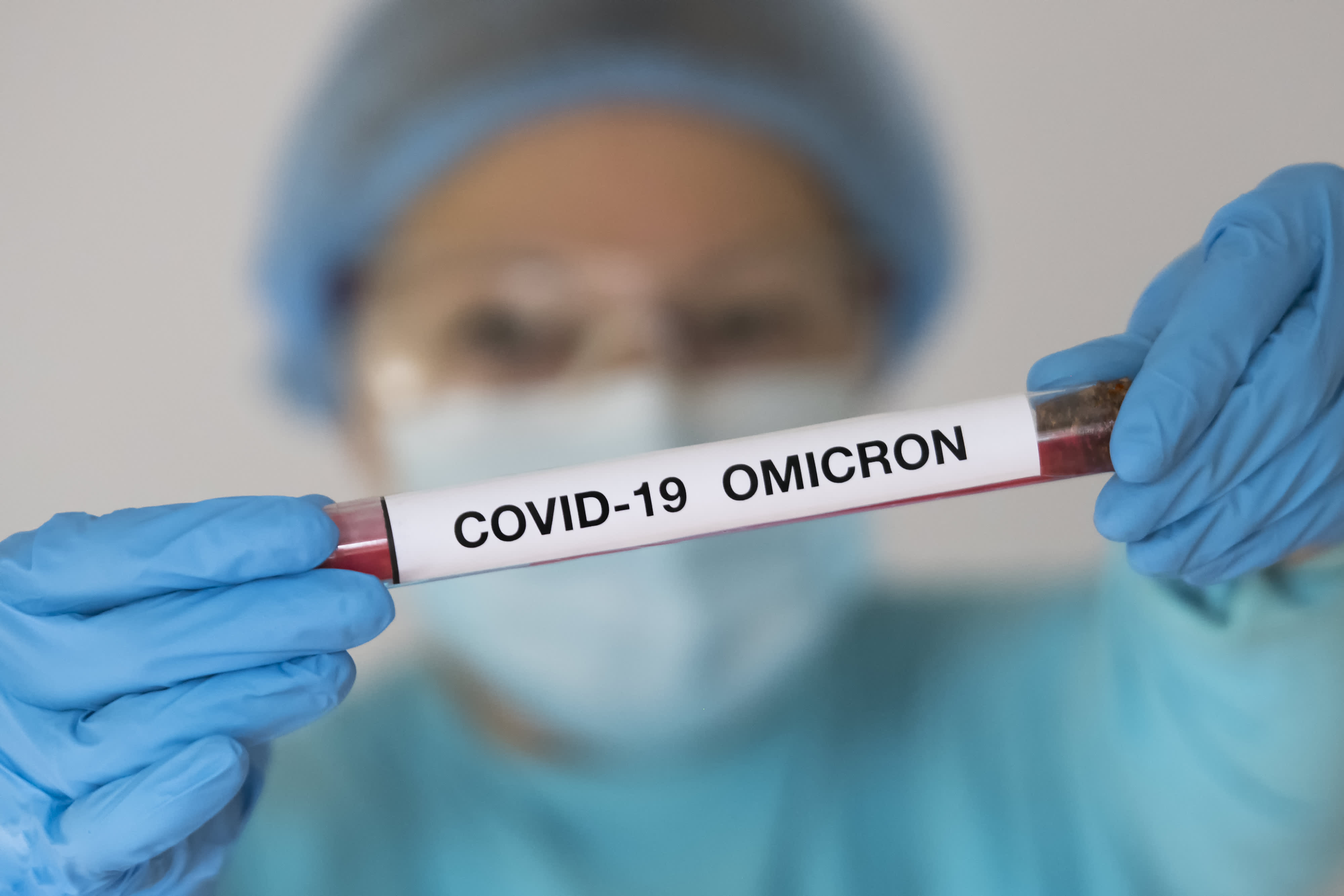The omicron variant of COVID-19 was detected for the first time in Massachusetts, state health officials announced Saturday.
The variant was detected in a fully vaccinated woman in her 20s who lives in Middlesex County and had recently traveled out of state. She has experienced only mild symptoms and hasn’t needed to go to the hospital, the Massachusetts Department of Public Health said.
The case was identified by genetic sequencing at New England Biolabs, the DPH said.
Now that omicron is here -- and it's been detected in Connecticut, as well as several other states in the Northeast and across the country -- health experts say we’re likely going to see it spread quickly in the coming days and weeks. They say it's also likely that it could surpass the delta variant, becoming the dominant strain.
Some evidence shows that omicron may be more contagious than all other variants out there, including delta.
“As long as we have unvaccinated people in regions across the state, the country and the world, there’s a chance that this virus can mutate to a new strain and quickly become the dominant strain,” said Dr. Michael Misialek, a pathologist at Newton Wellesley Hospital. “So, it’s cause for concern, people should remain vigilant.”
With a sense of urgency, health officials and local leaders are once again repeating their calls for people to get vaccinated, or to receive their booster shots.
“We have to be vigilant. We’re very much still in the pandemic, and the best thing we can do is to continue getting people vaccinated," Boston Mayor Michelle Wu said.
Evidence has shown omicron to be more transmissible than other COVID variants, and it's been labeled a "variant of concern" by the U.S. Centers for Disease Control and Prevention and the World Health Organization, but the Department of Public Health noted Saturday that "scientists are still working to determine how it may compare with the predominant Delta variant in terms of transmissibility and disease severity."
Omicron in New England
U.S. health officials said Sunday that while the omicron variant of the coronavirus is rapidly spreading throughout the country, early indications suggest it may be less dangerous than delta, which continues to drive a surge of hospitalizations.
“Thus far, it does not look like there’s a great degree of severity to it,” President Joe Biden's chief medical adviser, Dr. Anthony Fauci, said. “But we have really got to be careful before we make any determinations that it is less severe or it really doesn’t cause any severe illness, comparable to delta.”
"We do know that the vaccine is effective at keeping people out of the hospital, preventing severe diseases and illness," Misialek said, "and we have no reason to doubt that won't be the case with the new variant."
Gov. Charlie Baker told NBC10 Boston that he spent about an hour on the phone Friday with city and town leaders making plans to ramp up vaccinations. On Sunday he again stressed the importance of vaccines and boosters.
While there are already more than 1,000 vaccination sites statewide, the governor says there are plans to open even more of them as we deal with omicron.
“As we’ve headed into the winter, we’ve talked for a while about expanding both our capacity for delivering booster shots, our ability to deliver first and second shots for adults and for kids," Baker said. "We are going to do what we can to continue to expand our testing infrastructure, as well.”
The governor said he's also encouraged by the Biden Administration's plans to expand free at-home testing.



